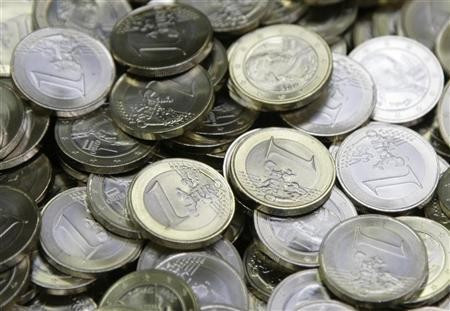What's next for the Euro?

Trading in currencies is basically a zero sum game. Rather than a stock or bond that can increase or decrease in value in absolute terms, and might move directionally the opposite of the equity or fixed income markets, currencies are all about relative movement. So in handicapping what might be the fate of the Euro currency in 2011, the question one has to ask is "In relation to what?"
Before we go there, however, we have to at least address the Euro from the standpoint of its likelihood to stay intact. There has been considerable prose given to the debate as to whether the Euro survives the fiscal crisis that erupted first in Greece last spring and then spread to other peripheral countries within the "euro zone." By all accounts, the great experiment that is the common currency of the now seventeen-member euro zone (including the recent addition of Estonia), should stand to weather the storm. Three years of heavy planning before the launch of a single Euro currency, plus more than a decade of trade utilizing it, reduces the likelihood of its failure without a tremendous effort on the part of its vested policymakers to hold it together. This is evidenced by the support it gets from its largest and most visible participants in the form of Germany's Chancellor Angela Merkel and France's President Nicolas Sarkozy.
The event that triggered a bout of angst across Europe and markets around the world exposes an issue that under normal conditions would not be so apparent. That is the formula of single currency and central bank is sometimes at odds with the triage an individual country, with its independent politics, needs to undertake to cure its own unique affairs. For instance, Iceland, which went through a horrific decline in economic output but through a 60% devaluation of its currency followed by a restructuring of its debts, the Icelandic economy has made a marked turnaround. As such, the medicine needed to more quickly resuscitate the economies of Greece, Ireland, Portugal, and perhaps others - a deliberate devaluation of a currency to stimulate export activity and invite inflation - will instead have these countries labor under the Euro currency that will stay too strong for them even as its bout of weakness over the last several months serves to benefit the export nations in the euro zone, principally Germany and France, which have already shown a healthy improvement in economic conditions. This likely portrays a scenario in which persistent deflation and struggling economies linger across the European community for an extended period of time, measured in years not months, keeping the risks of a sovereign debt default elevated.
In any scenario, currency calls are tough to make so there is no room to be overly dogmatic. And yet we expect the Euro to see further declines in value against the U.S. dollar as well as against many emerging market currencies. The dissimilarity between the Euro and the U.S. dollar is that while the dollar is expected to strengthen against the Euro, it too is likely to suffer weakening trends against many emerging market currencies. In that fate these two major markets, the European Community and the United States, share a trait; which is the fact that the respective pace of economic growth for each, as well to some degree fiscal conditions, while forecasted to improve in the coming year, is as yet not as strong as is being exhibited by countries for instance in Emerging Asia and Latin America. While monetary policy in the U.S. has been highly accommodative, even posturing to being as supportive as needed to ensure the eighteen month old economic recovery is sustainable, the same sentiment is apparently not shared by the European Central Bank with quite the same vigor. Certainly ECB President Jean-Claude Trichet has brought interest rates down to an exceedingly low level. However, he has also been hesitant to offer something akin to the U.S. Federal Reserve's asset-purchase program to a large extent, buying some Irish and Portuguese debt but not a "shock and awe" amount.
As a consequence, market forces will likely work to weaken the Euro in order to calibrate to the relatively tight monetary conditions currently being promoted by the ECB. Therefore, as it relates to the Euro/Dollar exchange, we find the U.S. economy likely to outperform the euro zone in 2011, which in turn lays the foundation for a stronger dollar against the Euro. From today's level of approximately $1.30 we would not be surprised to see that trend below $1.20 against the U.S. dollar, about where it stood when it first bottomed in June of 2010 as the trillion dollar ECB-led Euro stabilizing bailout package was announced.
© Copyright IBTimes 2025. All rights reserved.





















